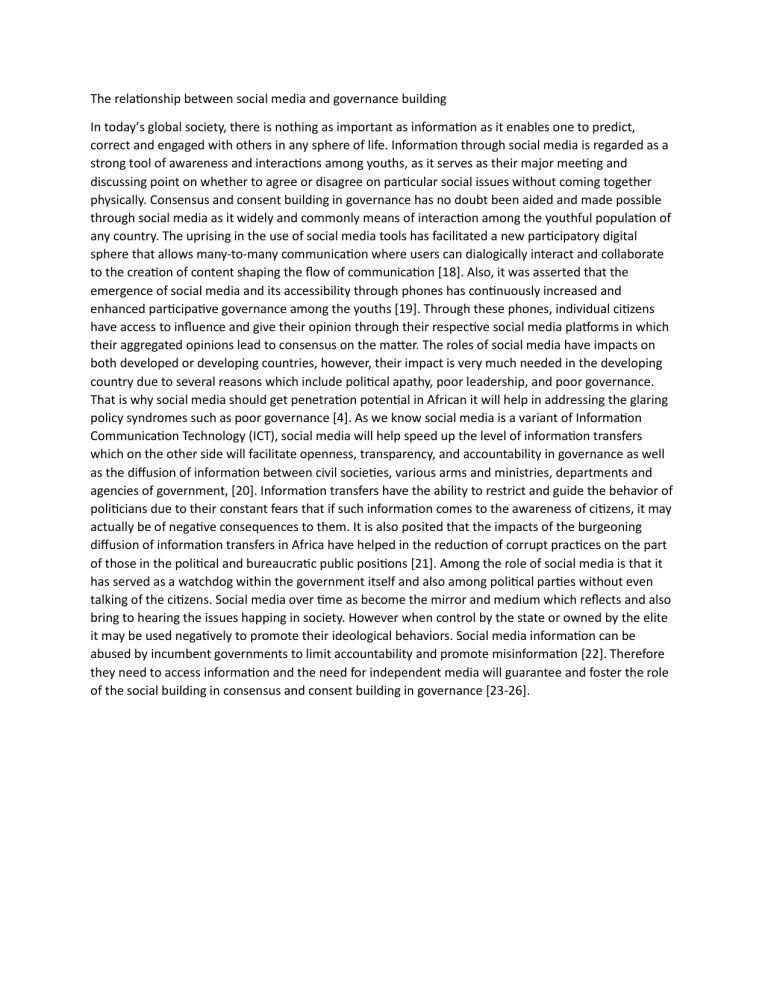
The relationship between social media and governance building In today’s global society, there is nothing as important as information as it enables one to predict, correct and engaged with others in any sphere of life. Information through social media is regarded as a strong tool of awareness and interactions among youths, as it serves as their major meeting and discussing point on whether to agree or disagree on particular social issues without coming together physically. Consensus and consent building in governance has no doubt been aided and made possible through social media as it widely and commonly means of interaction among the youthful population of any country. The uprising in the use of social media tools has facilitated a new participatory digital sphere that allows many-to-many communication where users can dialogically interact and collaborate to the creation of content shaping the flow of communication [18]. Also, it was asserted that the emergence of social media and its accessibility through phones has continuously increased and enhanced participative governance among the youths [19]. Through these phones, individual citizens have access to influence and give their opinion through their respective social media platforms in which their aggregated opinions lead to consensus on the matter. The roles of social media have impacts on both developed or developing countries, however, their impact is very much needed in the developing country due to several reasons which include political apathy, poor leadership, and poor governance. That is why social media should get penetration potential in African it will help in addressing the glaring policy syndromes such as poor governance [4]. As we know social media is a variant of Information Communication Technology (ICT), social media will help speed up the level of information transfers which on the other side will facilitate openness, transparency, and accountability in governance as well as the diffusion of information between civil societies, various arms and ministries, departments and agencies of government, [20]. Information transfers have the ability to restrict and guide the behavior of politicians due to their constant fears that if such information comes to the awareness of citizens, it may actually be of negative consequences to them. It is also posited that the impacts of the burgeoning diffusion of information transfers in Africa have helped in the reduction of corrupt practices on the part of those in the political and bureaucratic public positions [21]. Among the role of social media is that it has served as a watchdog within the government itself and also among political parties without even talking of the citizens. Social media over time as become the mirror and medium which reflects and also bring to hearing the issues happing in society. However when control by the state or owned by the elite it may be used negatively to promote their ideological behaviors. Social media information can be abused by incumbent governments to limit accountability and promote misinformation [22]. Therefore they need to access information and the need for independent media will guarantee and foster the role of the social building in consensus and consent building in governance [23-26].

